Results
-
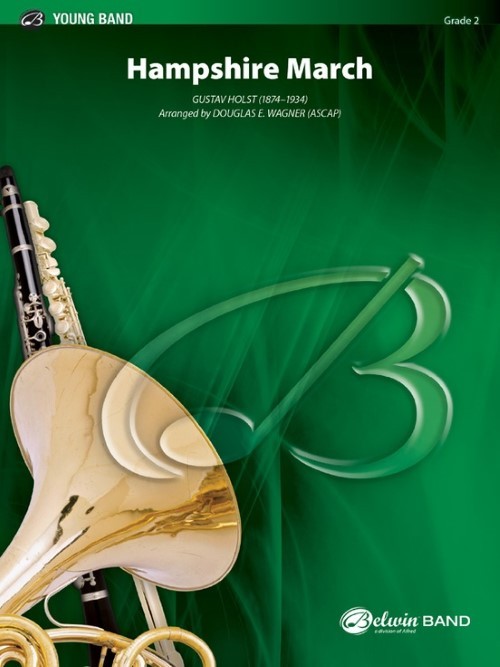 £53.95
£53.95Hampshire March (Concert Band - Score and Parts) - Holst, Gustav - Wagner, Douglas E.
Based on the original opening of the original introduction for Second Suite in F for Military Band, Holst replaced this section with the now-familiar morris dance tune, "Glory Shears." The 38-measure passage (crossed out in the autograph score) draws upon the English folk song, "Young Reilly," and presents an alluring work in itself for younger players. Serious band literature for your developing band.Duration: 2:15
Estimated dispatch 7-14 working days
-
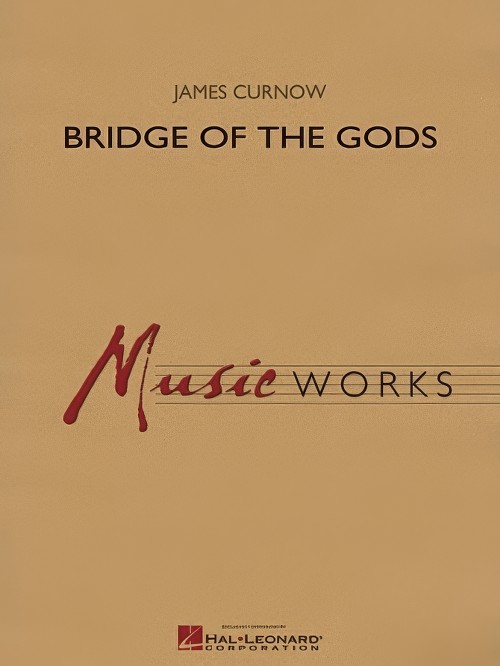 £118.99
£118.99Bridge of the Gods (Concert Band - Score and Parts) - Curnow, James
Commissioned by the Oregon Symphonic Band in Portland, Bridge of the Gods is a dramatic three-movement symphonic poem presenting the colourful legend told by the Native American Klickitatst about the origins of the volcanic mountains of the Cascade range and legendary bridge. The first movement (Saghalie) pays tribute to the powerful chief of all gods and is based on a majestic fanfare theme. The second movement captures the beauty of the maiden Loowit, with haunting flute and English horn solos accompanied by soft chanting voices. The final movement, Tanmahawis, utilises stark clusters, jagged melodic fragments, and rhythmic percussive energy as it depicts the destruction of the mighty bridge.Duration: 10:00
Estimated dispatch 7-14 working days
-
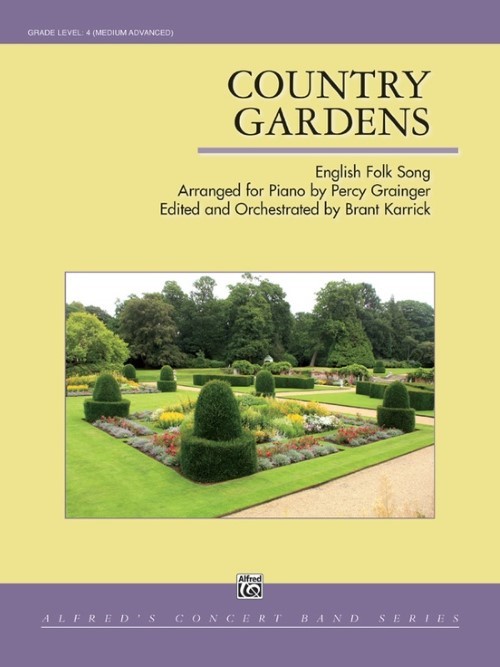 £78.00
£78.00Country Gardens (Concert Band - Score and Parts) - Grainger, Percy Aldridge - Karrick, Brant
Grainger's first piano arrangement of this English morris dance tune was completed in 1918 as a birthday gift for his mother. It became extremely popular and was his greatest commercial and financial success. Even this simple tune displays his genius with harmony, counterpoint, and colour. This very playable arrangement is an excellent way to introduce your students to the music of Percy Grainger.Duration: 2:10
Estimated dispatch 7-14 working days
-
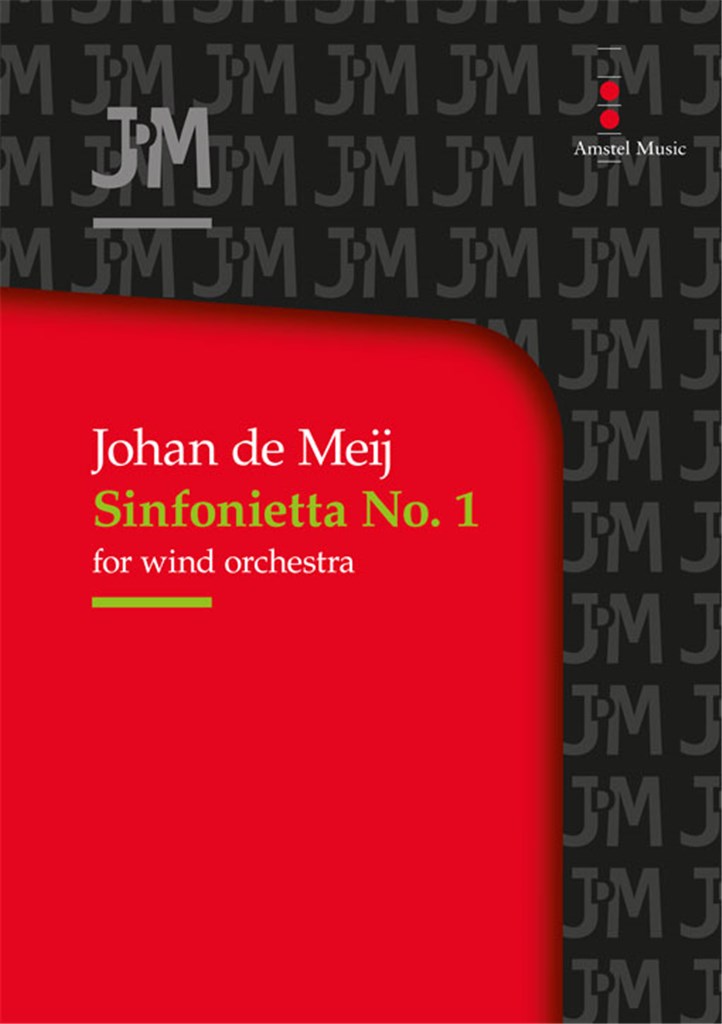 £229.00
£229.00Sinfonietta No.1 (Concert Band - Score and Parts) - De Meij, Johan
Sinfonietta No.1 was originally written for brass band, commissioned by the Dutch National Championships 2011 in Groningen. It also served as the test piece for the Swiss National Championships 2011 in Montreux, Switzerland. In 2012, Johan de Meij created this version for wind orchestra. Unlike most of Johan de Meij's compositions, Sinfonietta No.1 is an abstract, non-programmatic work. It consists of three movements, in which the thematic material of the opening measures, an upward fifth jump. returns in various shapes and forms throughout the piece. The slow middle section features solo passages by cello, English horn and bassoon, all starting with the same fifth jump. The final movement presents an Elgar-like march theme, interspersed with quotes from the second movement, and ending with the opening theme of movement I.Duration: 15.30
Estimated dispatch 7-14 working days
-
 £52.95
£52.95With Thine Eyes (Concert Band - Score and Parts) - McWilliams, Rob
This delightful arrangement of the popular old English song Drink to Me Only with Thine Eyes provides younger symphonic bands with an opportunity to play lyrically while still sounding rich and mature. Plenty of variety in scoring and some jazzier harmonic twists make this piece perfect as a lovely change of pace for your next concert!Duration: 3:15
Estimated dispatch 7-14 working days
-
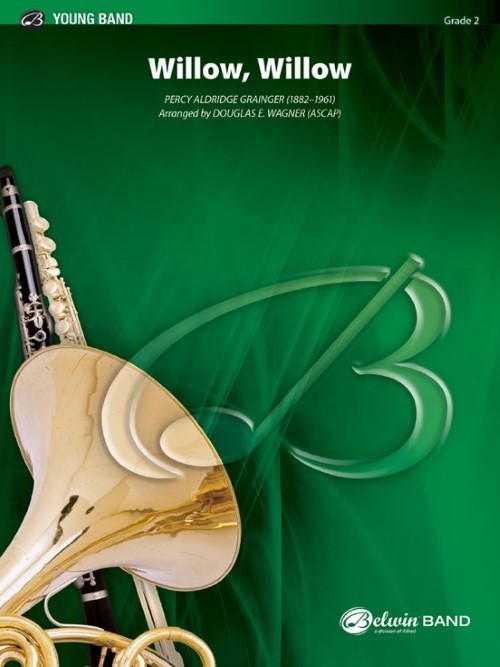 £55.00
£55.00Willow, Willow (Concert Band - Score and Parts) - Grainger, Percy Aldridge - Wagner, Douglas E.
The first of Grainger's settings of songs and tunes from William Chappell's "Old English Popular Music," this intense musical ballad offers the listener a languid and emotionally charged adaptation of Desdemona's song from Shakespeare's Othello.Duration: 2:30
Estimated dispatch 7-14 working days
-
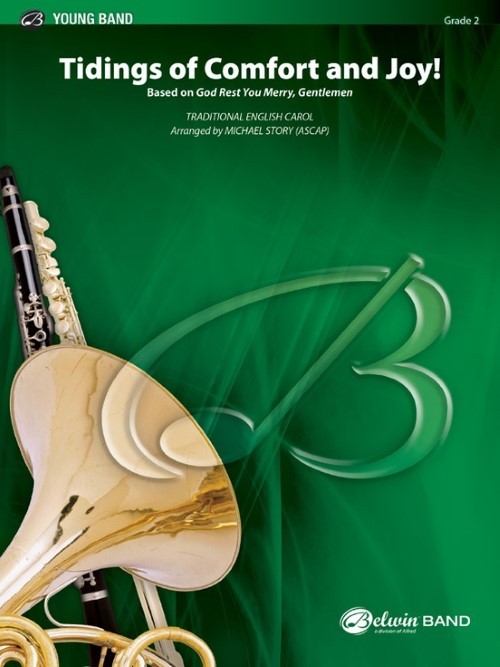 £55.50
£55.50Tidings of Comfort and Joy! (Concert Band - Score and Parts) - Story, Michael
Based on the popular English carol "God Rest You Merry, Gentlemen," this very musical holiday arrangement will reinforce legato technique and consistent ensemble phrasing while ushering in the joyous holiday season with musical glee. Opening with a clear unison statement and slowly adding textures and harmonic voices, the work develops to a joyous tutti statement that continues to build in intensity to a glorious conclusion.Duration: 2:45
Estimated dispatch 7-14 working days
-
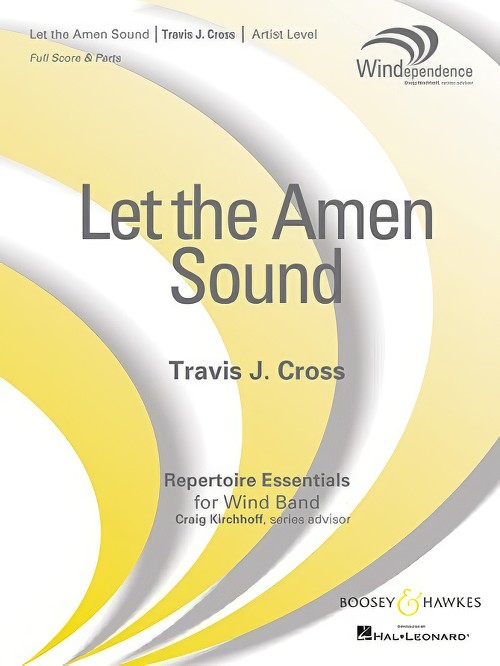 £115.00
£115.00Let the Amen Sound (Concert Band - Score and Parts) - Cross, Travis J.
Commissioned by the distinguished Northshore Concert Band under the direction of Mallory Thompson, Let the Amen Sound is based on Joachim Neander's 17th-century chorale "Lobe den Herren," known in English as "Praise to the Lord." The hymn tune is stated first by a solo flute, accompanied by percussion and muted trumpets, evoking the sound of liturgical bells. Three variations follow that represent important milestones common to human existence - the playful exuberance of childhood, the sentimental dance of youth, and the triumphant celebration of lives well lived. A dramatic and rewarding addition to the wind band repertoire. Duration: 7:00
Estimated dispatch 7-14 working days
-
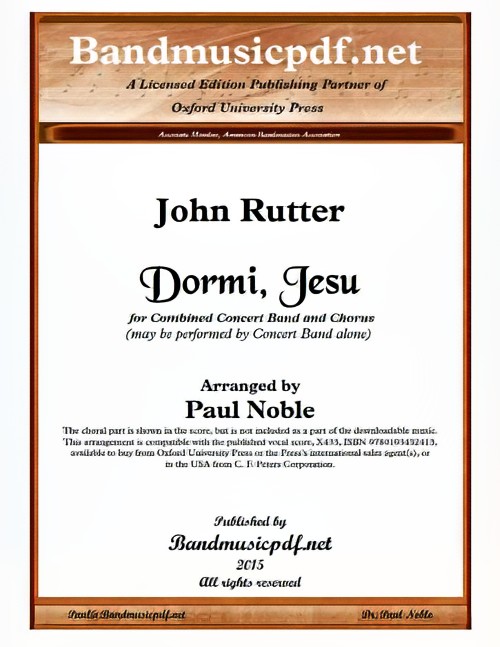 £75.00
£75.00Dormi, Jesu (Concert Band with Optional Choir - Score and Parts) - Rutter, John - Noble, Paul
The Latin text of this lullaby has been known and admired for centuries. It was translated into English by S. T. Coleridge (1772-1834). This arrangement is written for combined Concert Band and Chorus, but may be performed by Concert Band alone The choral part is shown in the score, but is not included as a part of the set. This arrangement is compatible with the published vocal score.
Estimated dispatch 7-14 working days
-
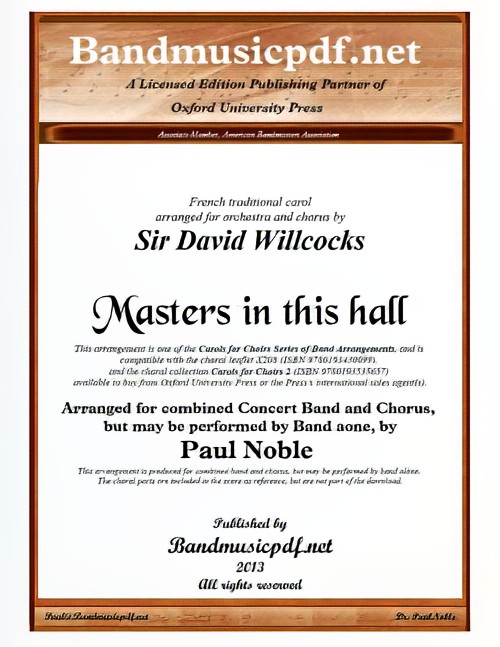 £75.00
£75.00Masters inTthis Hall (Concert Band with Optional Choir - Score and Parts) - Noble & Willcocks
Masters in This Hall (alternative title: Nowell, Sing We Clear) is a Christmas carol with words written around 1860 by the English poet and artist William Morris to an old French dance tune. It is said to have a sixteenth-century feel, harking back to a simpler society, in line with Morris's own romanticism. It also has elements of Morris's socialist beliefs, with the poor bringing news of Christ's birth to the Masters in this Hall and a warning to the proud. The carol describes a poor man, emphasized by his rural dialect, drawing his master's attention to the birth of Christ by describing how he had met shepherds travelling to Bethlehem in solemn mood where, joining them, he had seen the Christ child in his mother's arms. The chorus repeats how the birth of Christ has raised up the poor and cast down the proud. This represents one of the Series of Band Arrangements compatible with David Willcocks' Carols for Choirs.
Estimated dispatch 7-14 working days
